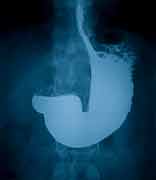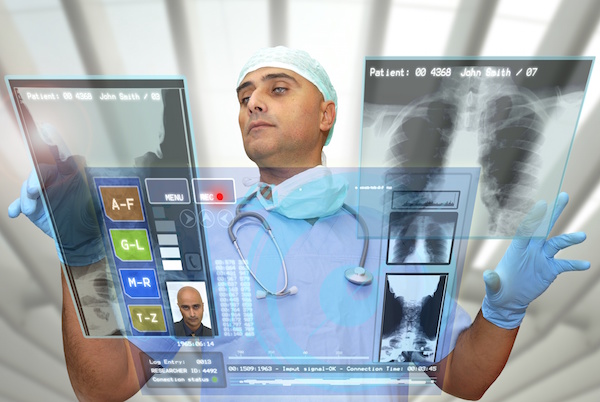
TUESDAY, May 17 (HealthDay News) — Both surgery and popular medications such as Nexium, Prevacid or Prilosec can successfully treat the discomfort of chronic reflux, according to new research.
Millions of Americans experience what’s known formally as chronic gastroesophageal reflux disease, or GERD. The condition is caused by acidic stomach contents washing up into the esophagus. GERD can have a debilitating effect on sleep, work and general quality of life.
However, “we have made very dramatic improvement in our treatment of GERD, that’s the good news,” said lead researcher Dr. Jean-Paul Galmiche, a professor of gastroenterology in the College of Medicine at Nantes University in France. Treatments include laparoscopic surgical fixes and the use of proton pump inhibitor (PPI) drugs such as Nexium (esomeprazole), Prilosec (omeprazole) and Prevacid (lansoprazole).
The new study — which was funded by Nexium’s maker, AstraZeneca — found “dramatic improvement in the results of surgery and excellent results also with medical therapy,” he stated. There was no real difference between the medical and surgical approaches in terms of their overall ability to ease GERD, “which was not expected,” Galmiche said.
Each treatment option did have its merits and demerits, however. For example, with surgery there is less regurgitation than with the medications, Galmiche said, but on the other hand, “you have more bloating and flatulence after surgery.”
This means that the choice of one treatment over the other is really up to the patient, he said. If you don’t want to take pills for the rest of your life you may opt for surgery, or if you fear surgical complications you can opt for PPIs. “You can choose your preferred treatment,” Galmiche said.
The report was published in the May 18 issue of the Journal of the American Medical Association.
The study included 554 people with GERD who had already responded well to Nexium in a three-month try-out period prior to their entry into the study. These participants were selected because, according to one outside expert, people with reflux who do not respond to a PPI probably have another condition other than GERD.
“Those are [also] the people who tend to not do as well on surgery, because a lot of them have non-acid reflux or another cause of their symptoms,” explained Dr. Amar R. Deshpande, an assistant professor of gastroenterology at the University of Miami Miller School of Medicine.
Of the 554 people selected into the trial, 372 completed five years of follow-up, including 192 randomly assigned to treatment with Nexium and 180 assigned to laparoscopic antireflux surgery.
Although the study used Nexium as its PPI, Galmiche pointed out that there is no reason why other drugs in this class wouldn’t work as well.
People taking Nexium were allowed to increase their dose as needed, the investigators noted.
Five years after initiating treatment, the researchers found that GERD was in remission for 85 percent of the patients who had undergone surgery and 92 percent of the patients who were taking Nexium.
Those taking Nexium had similar levels of heartburn and acid regurgitation from the start to the end of the study. However, these symptoms lessened among those who had surgery, the researchers noted.
For example, at five years, 13 percent of those taking Nexium had acid regurgitation compared with 2 percent of those who underwent surgery. Yet there was no significant difference between the groups in the severity of heartburn, abdominal pain or diarrhea, the investigators found.
In terms of complications, 11 percent of the surgery patients had difficulty swallowing, compared with 5 percent of those taking Nexium. Among those having surgery, more suffered bloating than those taking Nexium (40 percent versus 28 percent) and the same held for rates of (excess) flatulence (57 percent versus 40 percent), the researchers found.
In addition, about 29 percent of those who had surgery and 24 percent of those on Nexium experienced some serious adverse event.
Overall, however, “this large, multicenter randomized trial demonstrated that with modern forms of antireflux therapy, either by drug-induced acid suppression or after laparoscopic antireflux surgery, most patients remain in remission for at least five years,” the study authors concluded.
Commenting on the study, Deshpande said that “if you did well on Nexium and if you continued it or went to surgery, both afforded you a nine out of 10 chance of staying in symptom remission over the next five years.”
As he sees it, GERD therapy typically becomes a personal choice. “If you are taking one pill once a day, most people tend to want to do that [rather] than undergo surgery,” he said. However, it is those who do well on a PPI that typically also do well after surgery, he noted.
People who might opt for surgery are those who don’t want to take pills or are afraid of the side effects of PPIs, Deshpande said.
More information
For more information on GERD, visit the U.S. National Library of Medicine.

